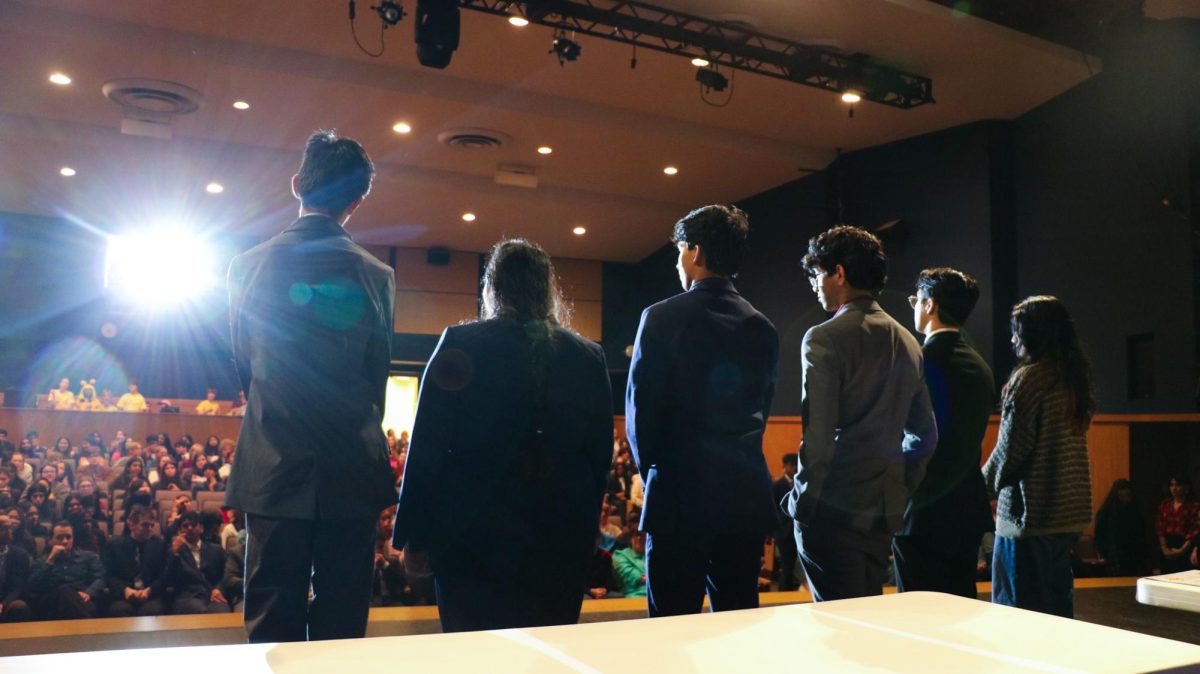Mike*, a CHS student, is showing off a bottle of whisky in his Twitter profile picture. The photo is on a public setting for anyone to see.
On a Sunday morning, if a CHS student was to scroll through their Facebook or Twitter news feed, he or she would most likely find photos of their classmates clearly intoxicated or holding alcoholic beverages: photos just like Mike’s.
Though the world of the Internet is open to his future educators and employers, Mike is not concerned about his profile picture.
“It doesn’t really bother me,†he said. “If I were applying for a job I might change it, but I don’t see any serious reason to.â€
Though he allows some of the photos to remain on his social media pages, Mike says he does take precautions, such as taking away his tag on an image.
“I usually don’t really do anything because I don’t think any colleges are going to see it or anything like that, but if [the picture is] someone chugging a beer then I might remove myself from the image,†Mike said.
On the contrary, Joe*, another CHS student, does not feel comfortable with any of these types of pictures on the Internet, despite the fact that they have become socially acceptable for many students.
“It’s cool to just have a good time and then live it in the moment, [but] I personally don’t like how you have to capture that forever,†Joe said. “I think it’s better to just have it be a moment in your life and then it fades and it’s gone.â€
Joe, who does go to parties and drinks, feels he has the right attitude towards situations in which people may be taking and posting pictures of people holding drinks or drinking.
“There are definitely friends who do it [post photos of drinking], but, personally, I know a lot of people who do it this way: they just really try not to get into any of the pictures … I usually am not at parties when people are trying to take a bunch of pictures … that’s not what I want to do,†Joe said.
Like Joe, Student Resource Officer John Zladic feels that photos of underage drinking should not be posted on the Internet. Zladic feels that minors need to remember that it is illegal to drink under the age of 21, also saying that photos could serve as a bad influence on fellow classmates.
“What you tend to get is underage people drinking in what they believe is a justified manner, and I kind of see it as, in colleges people [are] putting it on Myspace [and other sites], and that only reinforces the same behavior,†Zladic said. “It concerns me because you are actually engaging in a criminal activity and there’s consequences to that.â€
Joe feels that, in today’s world, a person’s online image is looked at as a representative of who that person is.
“Your Facebook page almost is like a resume. You need to watch what you post,†Joe said. “And it’s not just a resume for school, it’s a resume for people you want to know, somebody you’re trying to be friends with. They look at that, [so] you want to put your best foot forward at all times.â€
An admissions officer at a local university echoed Joe’s concern about how prospective students display themselves via social media websites. But, if the activities seen online are not interfering with a candidate’s school work or academic achievement, this admissions officer said online posts will not necessarily count against them.
“As long as the partying and drinking is not interfering with their work, it does not directly affect the admissions process in my book,†the admissions officer said.
But the officer did confirm that some admissions officers will look up a prospective student on Google to make sure he or she is not over exaggerating academic achievement.
“We Google some candidates mainly because we are excited about their accomplishments,†he said. “But if they have lied about receiving an award or some other accolade, that is grounds for rejection.â€
However, the “resume†that Joe describes may work favorably for the person. Perhaps certain groups and people want to see photos of drinking, which will incline them to be that person’s friend.
“A lot of fraternities, when you rush, they check your Facebook and it gives you an edge if you have a lot of pictures of alcohol and partying stuff, because then they want you in their frat,†Mike said.
Mike, who hopes to join a fraternity in college, feels he would be more inclined to post photos if it would give him a better chance of getting into the group.
A University of Arizona fraternity recruitment chairman agrees in some respects. Though he says his fraternity focuses on leadership qualities, he does think that some chapters on the Arizona campus do like finding members who enjoy partying, but photos on Facebook or other social media accounts are not the deciding factor.
Joe says that what the issue comes down to is how people want others to view them.
“My thing is, why would you want to put it [a picture] on unless you want people to see that you are this type of person?†Joe said. “Like, if you are a person that puts a bunch of their sports photos up, they are trying to show people what they are interested in and who they are. And if you are someone that likes to party, that is what you put up.â€
*This person’s name has been changed to preserve his or her anonymity.













